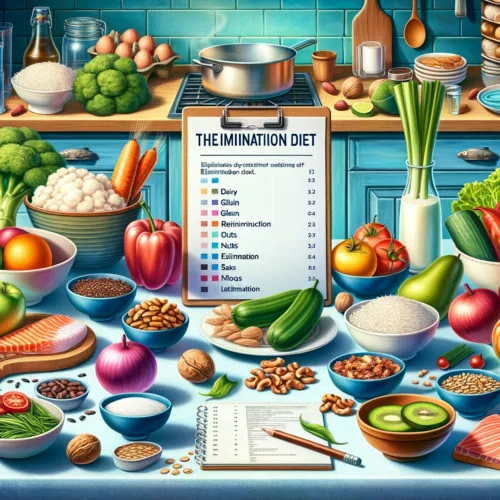Introduction
The kefir diet is a popular weight loss method based on the consumption of kefir as a staple food product. Originally originating from the Caucasus Mountains, kefir is a rich source of probiotics that have a positive effect on the digestive system and the overall health of the body. The kefir diet suggests combining kefir consumption with calorie restriction, which can promote weight loss and improve overall health.
| Pros of kefir diet | Minuses of kefir diet |
|---|---|
| Low-calorie | Can cause feelings of hunger and dissatisfaction. |
| Rich in prebiotics | Limits the variety of food products. |
| Supports healthy intestinal microflora | Not recommended for long periods or as a permanent diet. |
| Improves digestion | Can cause deficiencies in important nutrients. |
| Helps you lose weight | Does not provide adequate protein and micronutrients. |
| Affordable and budget-friendly | May cause unpleasant side effects such as abdominal pain and gas. |
| Increases satiety levels | Not suitable for people with lactose intolerance. |
Getting to know kefir

Kefir is a fermented milk product obtained by fermenting milk with the help of special microorganisms. It has a long history of use in the food culture of various nations. Kefir is characterized by its refreshing taste and delicate texture, and its nutritional composition makes it a valuable source of many useful substances.
Kefir has probiotics like lactobacillus and bifidobacteria, which promote gut and immune system health. In addition, kefir is rich in protein, vitamins (including B vitamins) and minerals (like calcium, phosphorus and potassium).
Because of its health benefits and ability to support healthy digestion, kefir has become a popular ingredient for kefir diets. Below we will look at the basic principles of the kefir diet and its potential benefits for the body.
How does the kefir diet work?
Calorie restriction
One of the main principles of the kefir diet is to limit calorie intake. In doing so, it is recommended that you create a calorie deficit by consuming less than you need to maintain your current weight. This is usually accomplished by controlling food portions and choosing low-calorie foods.
Kefir consumption
In the kefir diet, the main component is the consumption of kefir. It can be consumed as a drink and also used as an ingredient in various meals and snacks. Kefir contains a small amount of calories but has a satiating effect, which helps to reduce hunger and control appetite.
Additional products
In some variants of the kefir diet, it is allowed to include some additional products in the diet. These can be low-fat dairy products, vegetables, fruits, protein sources, cereals and greens. Additional products enrich the diet with necessary nutrients and diversify the menu, which contributes to a more balanced diet.
Benefits of kefir diet

Rich source of probiotics
Kefir is a rich source of probiotics, which are friendly bacteria that support healthy gut flora. Probiotics help balance the digestive system, improve digestion and nutrient absorption, and support immune function. Regular consumption of kefir as part of a kefir diet helps maintain healthy gut flora and improve overall body health.
Digestive support on a kefir diet
A kefir diet can have a positive effect on the digestive system. Kefir contains natural enzymes that help break down food and improve the digestive process. It can also help manage problems such as constipation or irritable bowel syndrome. Drinking kefir regularly as part of your diet can help your digestive system work more efficiently and improve overall stomach comfort.
Immune system strengthening
Probiotics in kefir have positive effects on the immune system. They can strengthen its function, helping to fight infections and prevent inflammation. Consuming kefir as part of a kefir diet can help strengthen the immune system, which increases its ability to fight disease and maintain overall health.
Kefir diet – recommendations and cautions

Choosing the right kefir
In the kefir diet, it is important to choose the right kefir for consumption. Preference should be given to natural kefir, without added sugar, artificial flavorings or preservatives. It is best to choose organic kefir or prepare it yourself at home to be sure of the quality of the product. It is also worth paying attention to the shelf life and storage conditions of kefir.
Kefir diet – keeping nutritional balance
It is important to remember that the kefir diet should not be the only source of nutrition. It should be included as part of a balanced diet that includes a variety of foods and all the necessary nutrients. Kefir can be the basis of the diet, but it is also necessary to consume vegetables, fruits, protein products and cereals to get all the necessary micronutrients and vitamins.
Potential limitations on the kefir diet
It should be taken into account that the kefir diet may not be suitable for everyone. People with certain diseases, allergies or intolerance to dairy products should consult a doctor before starting such a diet. In addition, the kefir diet can be unbalanced if all the necessary nutrients are not taken into account. Therefore, it is important to monitor your well-being and, if necessary, make adjustments to the diet or stop the diet.
In any case, it is recommended to consult with a doctor or nutritionist before starting a kefir diet to make sure it is safe and appropriate for your needs and goals. Following the right choice of kefir, nutritional balance and consideration of individual characteristics will help you achieve the best results and stay healthy during the kefir diet.
Kefir diet – menu for 7 days






Monday:
– Breakfast: 1 glass of kefir (about 150 calories).
– Lunch: Green salad with olive oil and chicken breast (about 300 calories).
– Dinner: Baked fish with vegetables (about 400 calories).
Tuesday:
– Breakfast: 1 glass of kefir and an omelet of two eggs (about 250 calories).
– Lunch: Braised vegetables with beef (about 350 calories).
– Dinner: Braised chicken breasts with vegetables (about 300 calories).
Wednesday:
– Breakfast: 1 glass of kefir and oatmeal on milk (about 300 calories).
– Lunch: Greek salad with chicken breast (about 400 calories).
– Dinner: Steamed vegetables with fish (about 350 calories).
Thursday:
– Breakfast: 1 glass of kefir and an apple (about 200 calories).
– Lunch: Braised vegetables with veal (about 350 calories).
– Dinner: Braised chicken and vegetables (about 300 calories).
Friday:
– Breakfast: 1 glass of kefir and berries (about 200 calories).
– Lunch: Tuna and vegetable salad (about 350 calories).
– Dinner: Stewed vegetables with turkey (about 350 calories).
Saturday:
– Breakfast: 1 glass of kefir and avocado toast (about 250 calories).
– Lunch: Baked chicken breast with vegetables (about 400 calories).
– Dinner: Fish stew with vegetables (about 350 calories).
Sunday:
– Breakfast: 1 glass of kefir and an omelet with vegetables (about 300 calories).
– Lunch: Braised vegetables with beef (about 350 calories).
– Dinner: Braised chicken breasts with vegetables (about 300 calories).
The total number of calories consumed may vary depending on individual needs. It is also important to pay attention to the quality of food, choosing fresh vegetables, meat and fish, and limiting salt and sugar intake. The diet can be varied by adding a variety of vegetables, fruits and protein foods to get all the nutrients you need.
Kefir diet – conclusion

The kefir diet is a popular weight loss method that relies on drinking kefir and restricting calories. It can provide several benefits including a rich source of probiotics, digestive support, and immune system strengthening.
However, there are a number of recommendations and cautions to consider before starting a kefir diet. It is important to choose good quality kefir, monitor nutritional balance and consider potential limitations such as individual needs and health conditions.
The approximate diet on the kefir diet can be varied and include a variety of foods rich in nutrients. It is important to follow the diet, observe moderation and pay attention to the caloric content of foods.
In conclusion, the kefir diet can be an effective method for achieving weight loss goals, but it is important to take into account individual body characteristics and consult a doctor or dietitian before starting any diet. It is important to approach weight loss wisely, pay attention to a sensible diet and physical activity to achieve long-term results and maintain good health.
Frequent questions
The kefir diet involves the use of kefir as the main product in the diet. It can be plain kefir or kefir with added fruit, honey or nuts.
The basic principles of the kefir diet include drinking kefir throughout the day, reducing carbohydrate and fat intake, and calorie restriction.
The kefir diet can be supplemented with vegetables, fruits, nuts and grains, but total calories must be reduced.
A kefir diet can promote weight loss, improve digestion, enrich the body with probiotics and protein, and reduce appetite.
The kefir diet is recommended to be followed for a short period of time, such as a few days to a few weeks, rather than as a long-term nutritional strategy.
The kefir diet may be low in calories and deficient in micronutrients and vitamins. It may not be suitable for people with certain medical conditions such as lactose intolerance.
Before starting any diet, including a kefir diet, it is recommended that you consult a doctor or dietitian to make sure it is safe and suitable for your needs.













